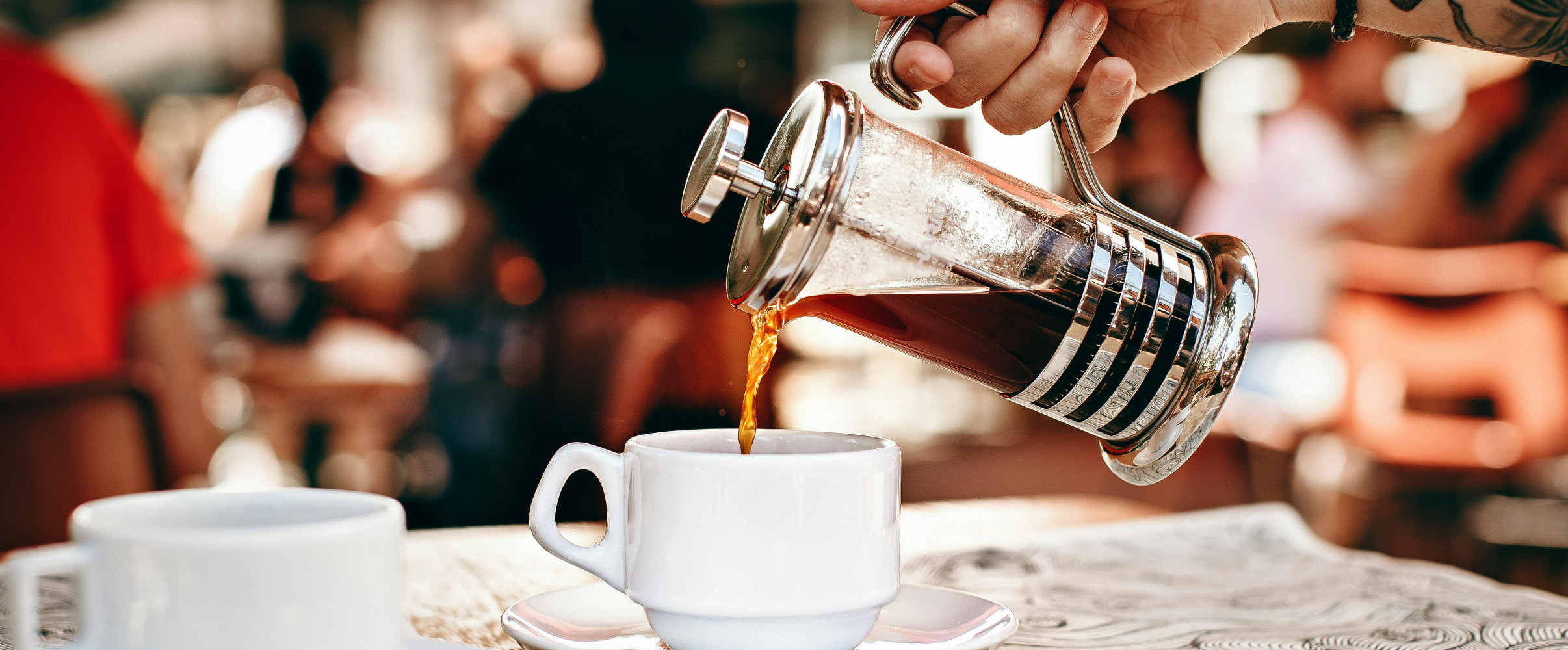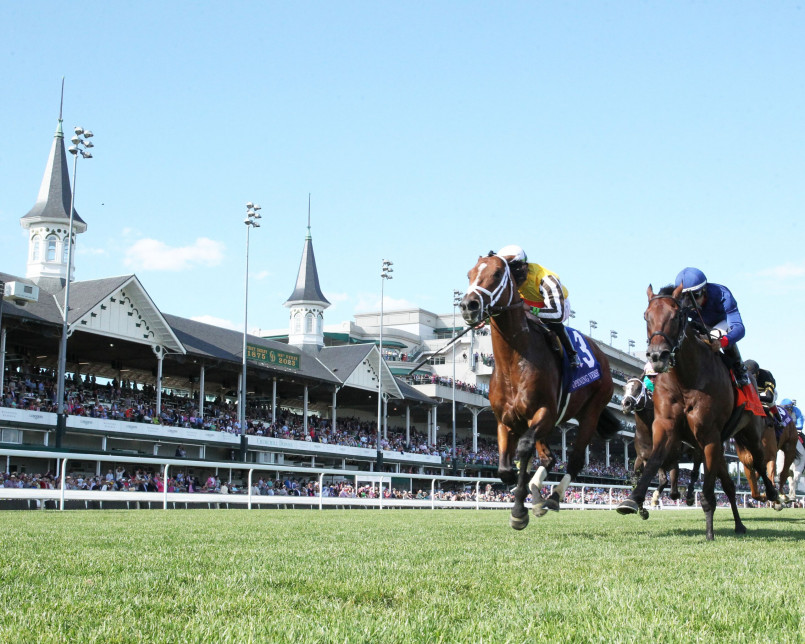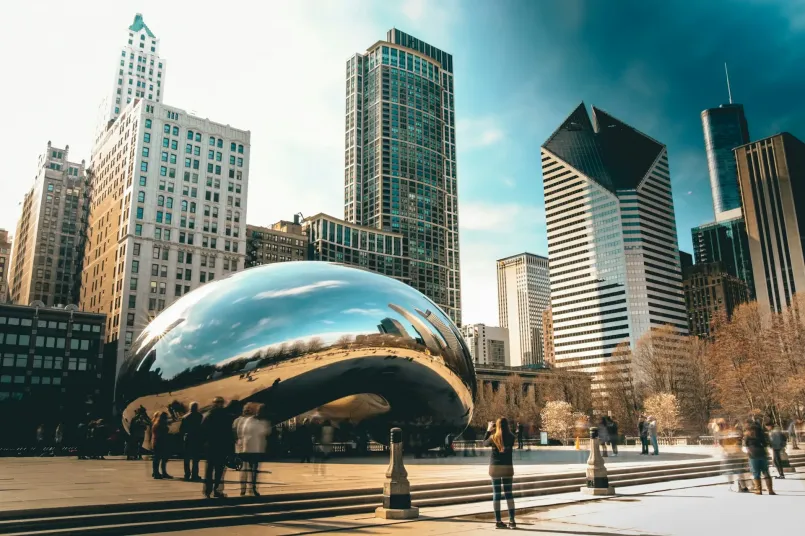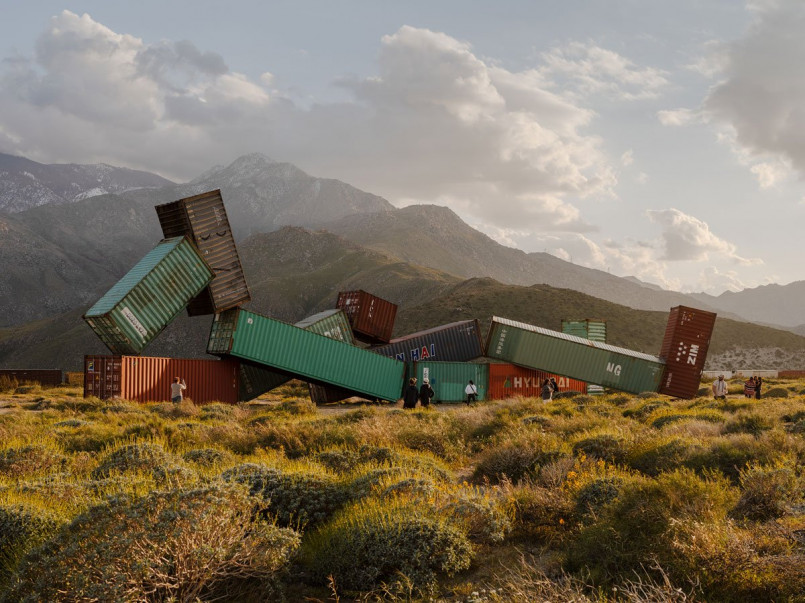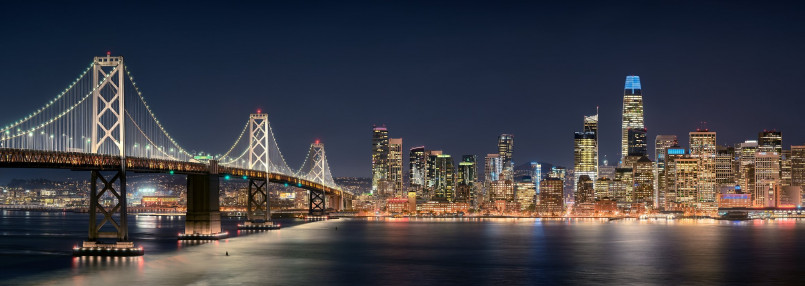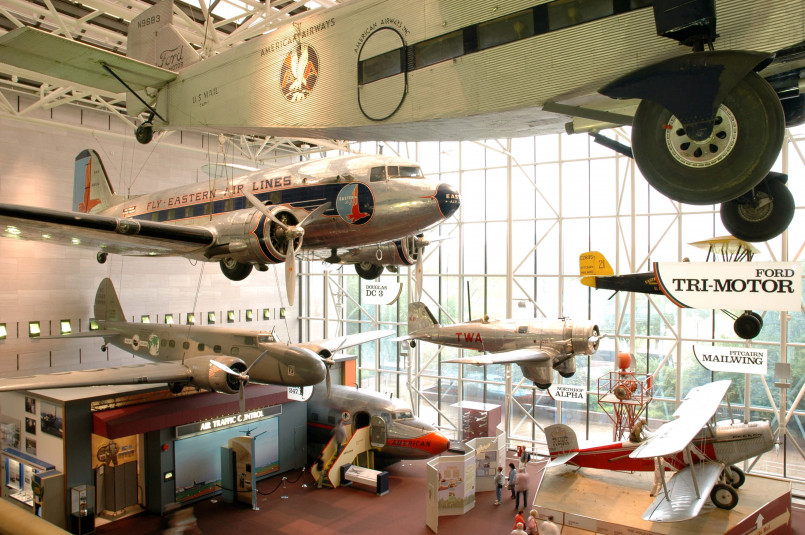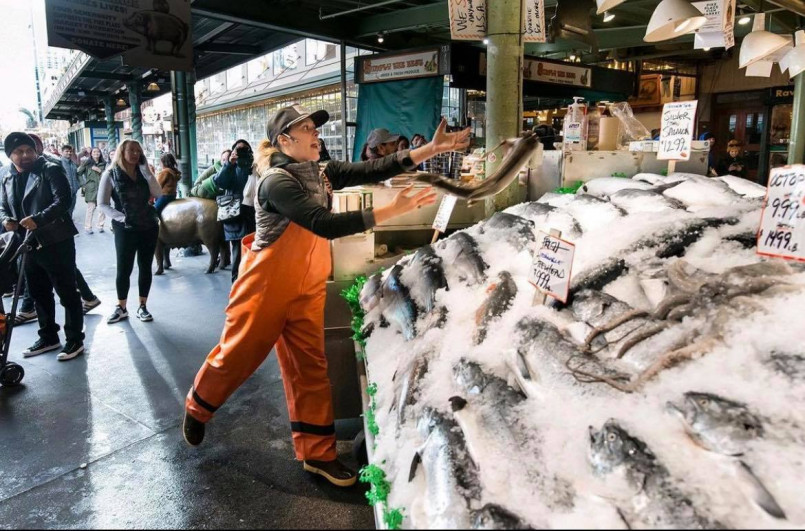Coffee culture in America has evolved far beyond the basic cup of joe. These cities have developed distinctive coffee identities with award-winning roasters, innovative brewing methods, and café spaces that serve as community hubs. From the birthplace of Starbucks to unexpected coffee meccas, these destinations offer unforgettable experiences for caffeine enthusiasts.
America's relationship with coffee has transformed dramatically over the past few decades. What was once a simple morning necessity has evolved into a sophisticated craft culture with its own language, expertise, and dedicated enthusiasts. The country's best coffee cities don't just serve great coffee-they've created entire ecosystems around it, from bean sourcing to roasting to innovative brewing methods.
These coffee destinations offer visitors the chance to experience unique regional interpretations of coffee culture while showcasing the passion and creativity that define third-wave coffee. Whether you're a casual drinker or a certified coffee nerd, these cities provide immersive experiences that go far beyond the average cup.
Portland, Oregon
Portland stands at the forefront of America's specialty coffee movement, with a concentration of exceptional roasters and cafés that's hard to match anywhere else in the country. The city's coffee scene is characterized by its fierce independence and commitment to sustainability.
Iconic roasters like Stumptown Coffee helped put Portland on the map, pioneering direct trade relationships with farmers and elevating coffee quality standards nationwide. But the city's coffee identity goes much deeper with standouts like Heart, Coava, and Nossa Familia showcasing distinctive roasting philosophies.
Portland cafés often double as community spaces, with many featuring local art, hosting events, or collaborating with other local artisans. The city's coffee professionals pride themselves on accessibility-even the most technically precise shops maintain a welcoming attitude for newcomers.
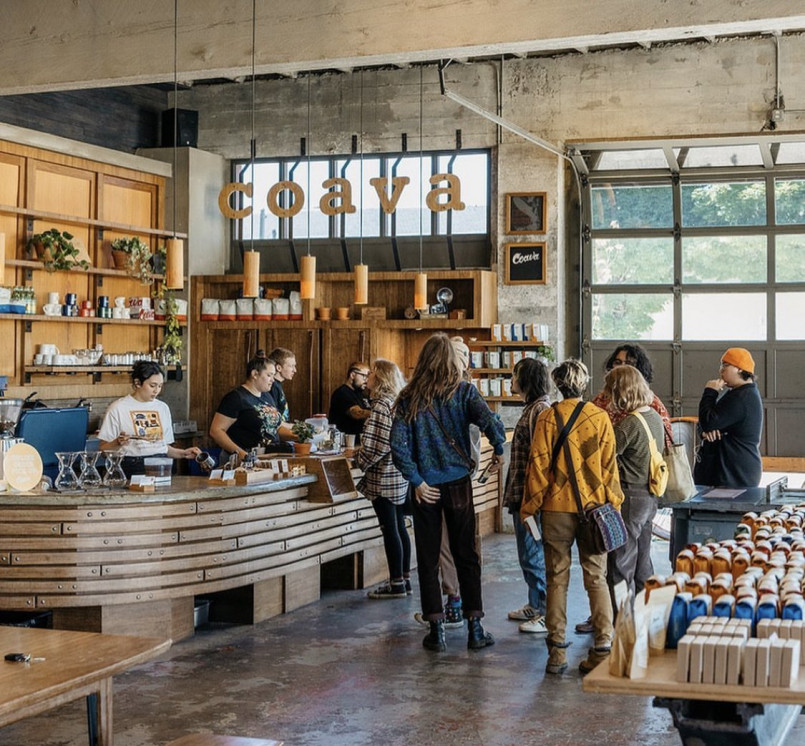
Must-Visit Portland Coffee Spots
Don't miss Proud Mary, an Australian transplant known for exceptional filter coffees and innovative café fare. Case Study Coffee offers meticulous brewing methods, while Never Coffee creates signature lattes with house-made syrups featuring unique flavor combinations.
Seattle, Washington
No discussion of American coffee culture would be complete without Seattle, the city that introduced much of the country to specialty coffee through Starbucks, founded at Pike Place Market in 1971. While Starbucks went on to global dominance, Seattle's coffee scene has continued to evolve and innovate.
Seattle's coffee identity blends reverence for tradition with forward-thinking approaches. The city's long, gray winters create the perfect environment for coffee appreciation, with cafés serving as essential third places between home and work.
Beyond the major players, Seattle hosts countless independent shops with loyal followings. The city maintains a technical excellence in coffee preparation while fostering a laid-back atmosphere that encourages customers to linger.
Seattle Coffee Institutions
Espresso Vivace, founded by David Schomer, revolutionized espresso in America through its Northern Italian approach. Victrola Coffee Roasters delivers consistently excellent coffee in beautiful spaces, while newer arrivals like Elm Coffee demonstrate the continued evolution of Seattle's coffee scene.
San Francisco, California
San Francisco's coffee culture mirrors its broader identity: technically innovative, aesthetically minded, and willing to question established norms. The city has incubated some of the most influential coffee businesses in America, from Blue Bottle to Ritual Coffee Roasters.
The San Francisco approach to coffee often emphasizes lighter roasting profiles that highlight the inherent characteristics of each bean origin. This precision extends to brewing methods, with many cafés featuring multiple preparation options for each coffee.
The city's tech influence is evident in both café design and business approaches, with many shops incorporating digital ordering, subscription services, and data-driven operations alongside artisanal quality.
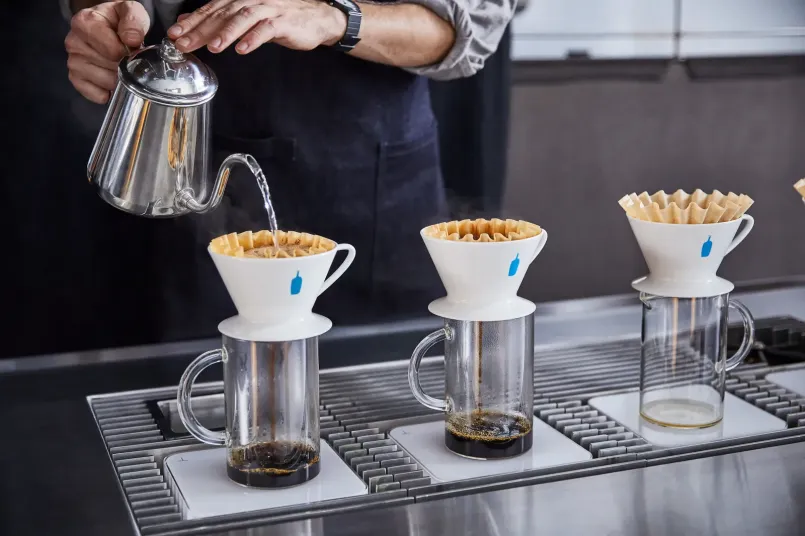
San Francisco Coffee Highlights
Sightglass Coffee offers an immersive experience with roasting operations visible in their flagship SoMa location. Four Barrel combines exceptional coffee with vinyl records for a complete sensory experience, while Saint Frank focuses on transparent relationships with coffee producers and educational customer experiences.
New York City
New York City's coffee scene reflects its global character, with influences from Italian espresso traditions, Australian café culture, Scandinavian minimalism, and Japanese precision. The city that never sleeps runs on caffeine, with neighborhood coffee shops serving as essential community anchors.
Manhattan pioneered upscale coffee bars with shops like Ninth Street Espresso introducing New Yorkers to espresso beyond the bodega standard. Brooklyn's influence brought a more casual, design-focused approach, while Queens offers some of the city's most diverse international coffee traditions.
NYC café spaces are often creative adaptations to limited square footage, resulting in unique experiences like standing espresso bars, coffee windows, and hybrid concepts combining coffee with other businesses.
New York Coffee Destinations
Counter Culture Coffee's training center offers public tastings and education. Partners Coffee (formerly Toby's Estate) provides exceptional coffee in beautiful spaces across the city, while specialty coffee pioneers like Café Grumpy continue to set high standards for quality and consistency.
Chicago, Illinois
Chicago's coffee culture combines Midwestern hospitality with cosmopolitan sophistication. The city has developed its own distinctive coffee identity, with roasters and cafés that have earned national recognition for their quality and innovation.
Intelligentsia Coffee, founded in Chicago in 1995, helped define third-wave coffee nationally while maintaining deep roots in the city. Chicago's coffee scene values accessibility alongside excellence, creating spaces that welcome both coffee aficionados and casual drinkers.
The city's architectural heritage influences its café spaces, with many shops occupying historic buildings or incorporating design elements that reference Chicago's industrial past.
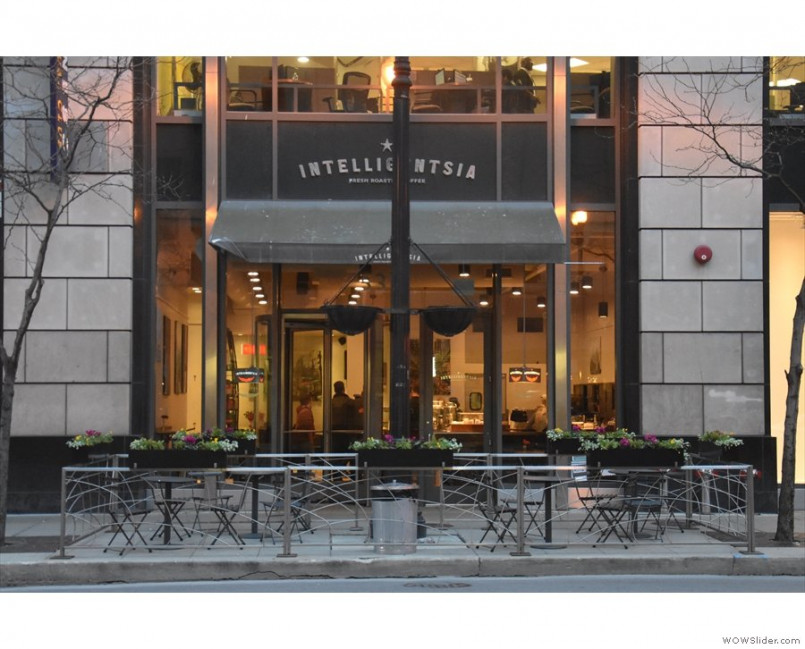
Chicago Coffee Highlights
Dark Matter Coffee stands out for creative flavor profiles and collaborations with artists and musicians. Metropolis Coffee Company delivers consistently excellent coffee while maintaining community focus, and Sparrow Coffee supplies many of the city's top restaurants with custom roasts.
Denver, Colorado
Denver's coffee scene has exploded in recent years, paralleling the city's overall growth. The Mile High City offers a distinctive coffee experience influenced by mountain culture and an active lifestyle.
Denver roasters often focus on sustainability and ethical sourcing, reflecting the city's environmentally conscious ethos. The café experience typically features spacious layouts, natural materials, and connections to outdoor spaces-perfect for enjoying Colorado's abundant sunshine.
The city's craft beer culture has influenced its coffee scene, with many shops experimenting with barrel-aging, cold brewing techniques, and coffee-beer collaborations with local breweries.
Denver Coffee Standouts
Huckleberry Roasters delivers exceptional seasonal coffees with thoughtful sourcing. Sweet Bloom Coffee Roasters, founded by a national barista champion, offers precisely roasted single-origin coffees, while Copper Door Coffee Roasters, Denver's first female-owned roastery, combines quality with community engagement.
Austin, Texas
Austin's coffee culture reflects the city's independent spirit and creative energy. The Texas capital has developed a vibrant scene that balances craft coffee expertise with laid-back Southern hospitality.
Austin cafés often feature ample outdoor seating to take advantage of the sunny climate, with many integrating coffee service with food, cocktails, or live music. The city's coffee professionals have developed a collaborative community that celebrates innovation while maintaining accessibility.
Many Austin coffee shops double as co-working spaces during the day and social hubs in the evening, creating multi-purpose community spaces that serve the city's entrepreneurs, students, and creative class.
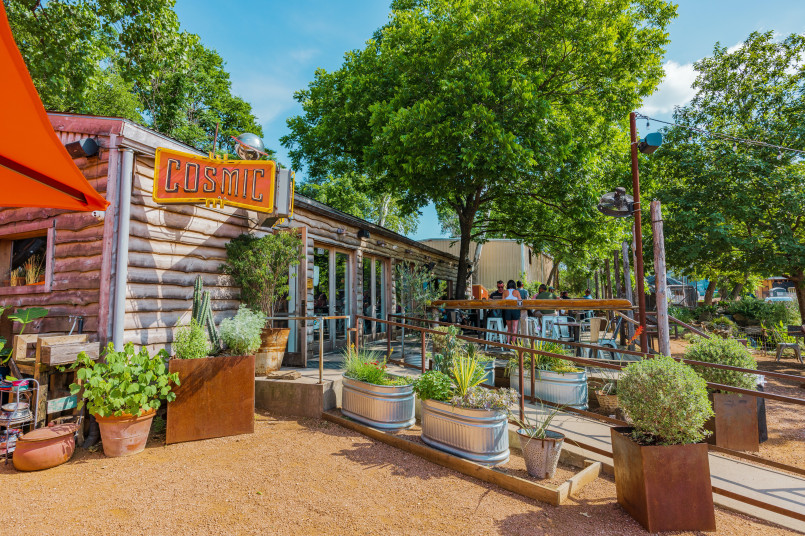
Austin Coffee Must-Visits
Flat Track Coffee combines excellent roasting with bicycle culture in a uniquely Austin way. Figure 8 Coffee Purveyors offers meticulously prepared drinks in a cozy neighborhood setting, while Greater Goods Roasting creates exceptional coffee while donating to local charities with each purchase.
New Orleans, Louisiana
New Orleans offers one of America's most distinctive regional coffee cultures, blending French colonial influences with Caribbean traditions. The city's signature coffee drink, café au lait made with chicory, provides a unique flavor profile found nowhere else in the country.
Historic coffee institutions like Café du Monde have served as cultural touchstones for generations, while a new wave of specialty coffee shops has brought contemporary approaches to the city's rich coffee heritage.
New Orleans coffee shops often feature leisurely service and spaces designed for conversation, reflecting the city's overall appreciation for life's pleasures and unhurried socializing.
New Orleans Coffee Experiences
French Truck Coffee brings bright, modern roasting approaches to traditional New Orleans coffee culture. HEY Coffee Co. combines exceptional coffee with community events and art shows, while Congregation Coffee Roasters offers outstanding drinks in a space that honors the city's architectural character.
Philadelphia, Pennsylvania
Philadelphia's coffee scene has flourished in recent years, combining East Coast sophistication with the city's unpretentious character. Philly coffee shops tend to emphasize neighborhood connections and community building alongside quality.
The city's roasters have developed distinctive approaches, often focusing on making specialty coffee more accessible while maintaining high standards. Philadelphia's historic architecture provides unique settings for cafés, from converted industrial spaces to classic row houses.
The food-focused culture of Philadelphia extends to its coffee shops, with many offering exceptional pastries and café cuisine that rivals the quality of their coffee programs.
Philadelphia Coffee Highlights
Elixr Coffee Roasters delivers meticulously sourced and roasted coffees in beautiful spaces. La Colombe, founded in Philadelphia before expanding nationally, maintains strong local roots with its flagship cafés, while Rival Bros brings a chef's sensibility to coffee roasting and preparation.
Nashville, Tennessee
Nashville's coffee culture has evolved alongside its growth as a creative hub, with cafés serving as important gathering places for the city's musicians, artists, and entrepreneurs. The city blends Southern hospitality with progressive coffee approaches.
Nashville roasters often emphasize approachability while still delivering exceptional quality, creating spaces and experiences that welcome both coffee enthusiasts and newcomers. Many coffee shops double as performance venues or gallery spaces, reflecting the city's artistic identity.
The collaborative spirit between Nashville's food, music, and coffee scenes creates distinctive café experiences that go beyond simply serving great coffee.
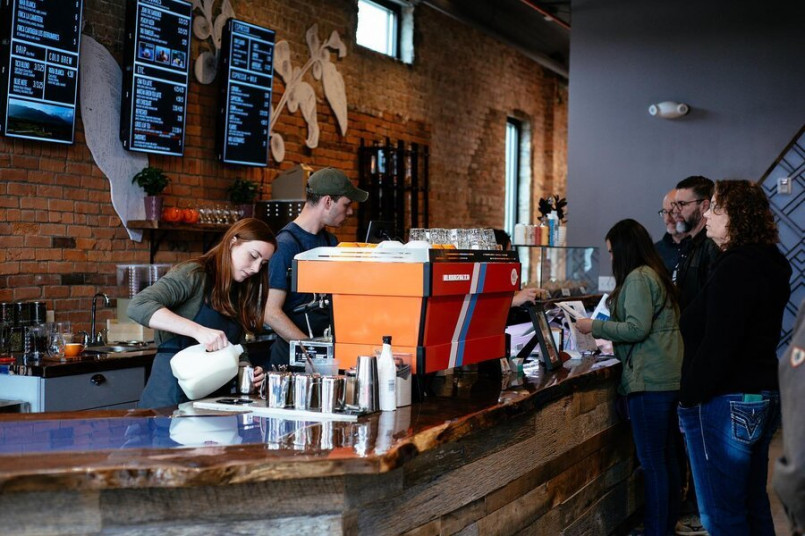
Nashville Coffee Standouts
Barista Parlor pioneered Nashville's specialty coffee scene with showpiece spaces and meticulous attention to detail. Crema focuses on producer relationships and education alongside outstanding coffee, while Stay Golden combines excellent food and coffee with sustainability initiatives.
Planning Your Coffee City Tour
To make the most of a visit to any of these coffee destinations, consider these strategies for a deeper experience:
Research signature drinks that define each city's coffee identity-from Seattle's perfect espresso to New Orleans' chicory café au lait. Plan visits to include both historic institutions and cutting-edge newcomers for a complete picture of the local scene.
Many roasters offer public cuppings (coffee tastings) or tours of their facilities-these provide valuable insights into what makes each city's approach distinctive. Talking with baristas about local favorites can lead to discoveries beyond the most Instagram-famous locations.
Consider the timing of your visit-many cities host coffee festivals or competitions that showcase their coffee community at its most dynamic. Finally, leave room for serendipity-some of the best coffee experiences come from the unexpected neighborhood gem discovered while exploring.
Frequently Asked Questions About 10 US Cities With The Best Coffee Scenes You Need To Experience
What makes a city a great coffee destination?
A great coffee city typically features multiple local roasters with distinctive approaches, a variety of café styles from traditional to experimental, knowledgeable baristas passionate about education, and a community that supports quality and innovation. The best coffee cities develop unique regional identities while maintaining connections to global coffee trends and often integrate coffee culture with local arts, food, and community activities.
When is the best time of year to visit these coffee cities?
For northern cities like Seattle and Portland, summer months (June-September) offer the best experience with outdoor seating and pleasant weather. Cities like Austin and New Orleans are more enjoyable during spring and fall when temperatures are moderate. Many cities host coffee festivals-Seattle's Coffee Fest in fall, the New York Coffee Festival in October, and Portland's various coffee events throughout the year-which can provide especially immersive experiences.
How has coffee culture changed in these cities over the past decade?
The past decade has seen several significant shifts: increased transparency about bean sourcing and producer relationships, more attention to sustainability practices, integration of technology in ordering and operations, a greater focus on coffee as part of broader hospitality experiences, and the emergence of multi-roaster cafés that showcase coffees from around the country. Many cities have also seen coffee shops expand their offerings to include craft food programs, cocktails, or wine selections.
Are these coffee scenes accessible to casual coffee drinkers?
Yes, most cities have evolved to balance expertise with accessibility. While you'll find plenty of specialty shops catering to aficionados, most quality-focused cafés welcome newcomers and offer familiar drinks alongside more adventurous options. Baristas in top coffee cities are typically trained to guide customers without condescension. Cities like Chicago, Nashville, and Austin particularly excel at making specialty coffee approachable to a broad audience.
What's the average price for a specialty coffee in these cities?
Prices vary by city, with New York and San Francisco typically being the most expensive. In 2023, expect to pay $4-5 for a standard drip coffee at specialty shops, $5-7 for espresso drinks like lattes and cappuccinos, and $6-9 for manual brewing methods like pour-overs featuring single-origin beans. Special seasonal drinks or signature creations can range from $6-10 depending on ingredients and preparation complexity.
How do these different coffee cities influence each other?
There's significant cross-pollination between these coffee scenes through barista competitions, industry events, and professionals who relocate between cities. Portland and Seattle have historically influenced roasting approaches nationwide, while New York has imported global café models and adapted them to American tastes. More recently, cities like Nashville and Austin have demonstrated how to make specialty coffee more approachable, influencing even established coffee destinations.
